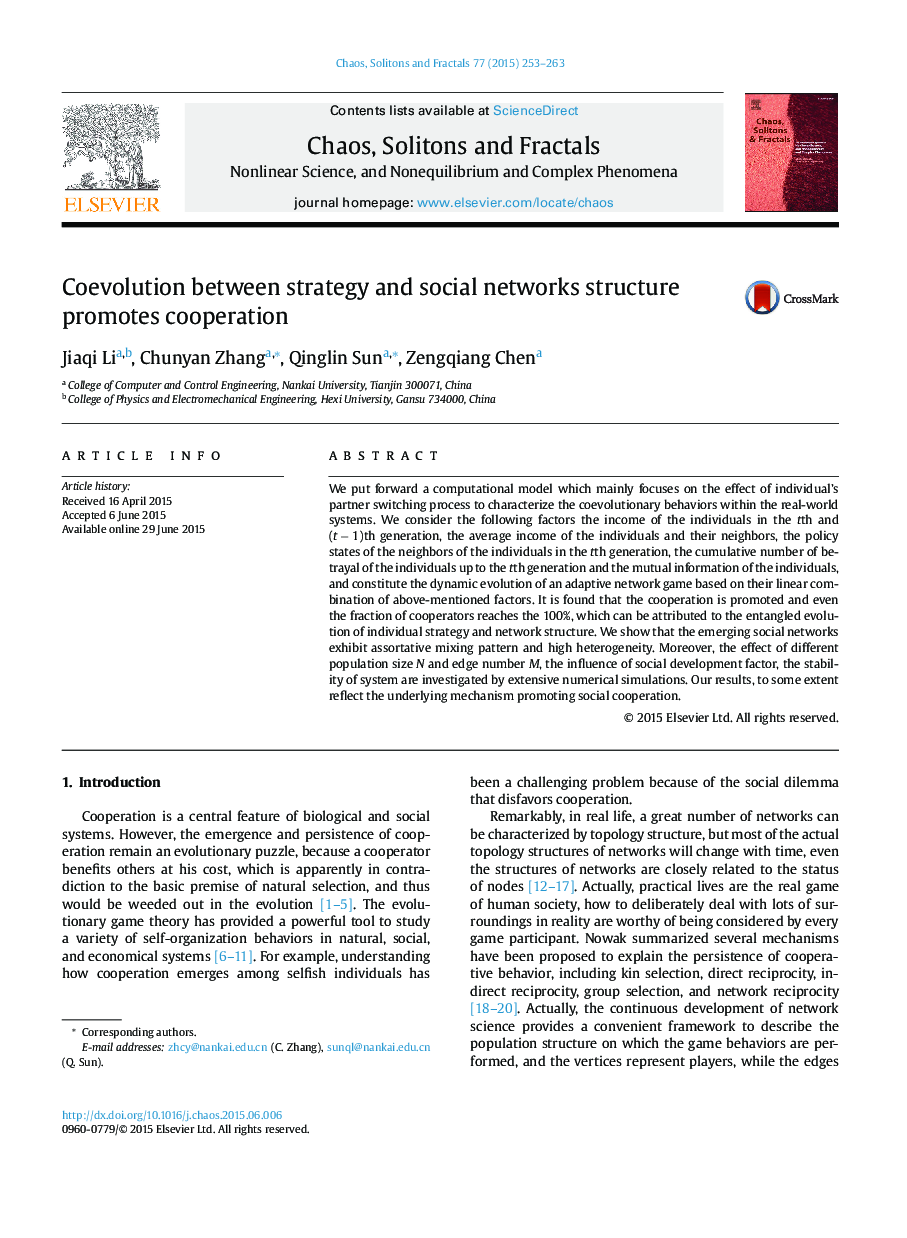| Article ID | Journal | Published Year | Pages | File Type |
|---|---|---|---|---|
| 8254855 | Chaos, Solitons & Fractals | 2015 | 11 Pages |
Abstract
We put forward a computational model which mainly focuses on the effect of individual's partner switching process to characterize the coevolutionary behaviors within the real-world systems. We consider the following factors the income of the individuals in the tth and (tâ1)th generation, the average income of the individuals and their neighbors, the policy states of the neighbors of the individuals in the tth generation, the cumulative number of betrayal of the individuals up to the tth generation and the mutual information of the individuals, and constitute the dynamic evolution of an adaptive network game based on their linear combination of above-mentioned factors. It is found that the cooperation is promoted and even the fraction of cooperators reaches the 100%, which can be attributed to the entangled evolution of individual strategy and network structure. We show that the emerging social networks exhibit assortative mixing pattern and high heterogeneity. Moreover, the effect of different population size N and edge number M, the influence of social development factor, the stability of system are investigated by extensive numerical simulations. Our results, to some extent reflect the underlying mechanism promoting social cooperation.
Related Topics
Physical Sciences and Engineering
Physics and Astronomy
Statistical and Nonlinear Physics
Authors
Jiaqi Li, Chunyan Zhang, Qinglin Sun, Zengqiang Chen,
